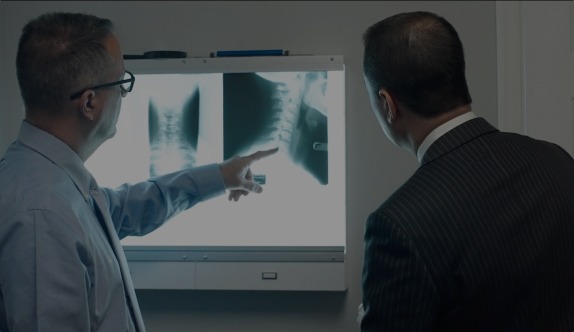In most cases, car accident settlements are not taxable in Maryland, but there are important exceptions you should understand. After a car accident, receiving a settlement can feel like a lifeline. Yet, many people worry about whether a portion of their settlement might be claimed by the IRS or the State of Maryland for taxes.
Understanding how your settlement is taxed can help you plan and protect your recovery. In this article, we’ll explain how Maryland and federal tax laws treat car accident settlements, which portions may be taxable, what exceptions could apply, and how working with a Maryland car accident lawyer can help you avoid costly mistakes.
Let Adam Smallow Injury Lawyers fight for your recovery. Contact us today.
FREE CASE EVALUATIONAre Car Accident Settlements Taxable in Maryland?
Generally speaking, most car accident settlements in Maryland are not taxable as long as they are meant to compensate for physical injuries or physical sickness. The Internal Revenue Service (IRS) and Maryland tax authorities both exempt these types of damages from being considered taxable income.
This means that if your settlement covers things like medical expenses, pain and suffering linked to a physical injury, or property repairs, you typically do not have to pay taxes on that money. It’s yours to use for your recovery without worrying about the IRS taking a portion.
However, not every part of a settlement is treated the same way. Certain portions may be taxable. Understanding which parts of a settlement are protected and which are not is crucial to avoiding surprises when tax season comes around.
What Parts of a Settlement are Not Taxable?
Most money awarded for physical injuries in a Maryland car accident settlement is not taxable, according to the Internal Revenue Service. Here’s a closer look at the portions you can typically keep without worrying about federal or state income taxes:
- Medical Expenses: Compensation for medical treatment is generally not taxable, provided you did not previously deduct those expenses on a tax return. If you deducted these expenses in a prior year, that portion may become taxable under IRS “double recovery” rules.
- Pain and Suffering Linked to Physical Injury: Damages awarded for physical pain and emotional suffering directly resulting from your injuries are tax-exempt. The key is that the suffering must be connected to a physical injury or illness caused by the accident.
- Property Damage Reimbursements: If your settlement reimburses you for repairing or replacing your vehicle or other personal property, it is not taxable as long as the reimbursement does not exceed your adjusted basis (essentially, your financial investment) in the property.
- Loss of Consortium: Damages awarded for loss of consortium (loss of companionship or support due to injury) related to a physical injury are typically also excluded from taxable income.
By understanding which portions of your settlement fall into these protected categories, you can better plan how to use your compensation without the fear of unexpected tax bills.
What Parts of a Settlement May Be Taxable?
While much of a car accident settlement is non-taxable, certain parts may trigger a tax obligation. Understanding these exceptions is essential for anyone planning their financial future after an accident:
- Lost Wages: If a portion of your settlement is intended to replace the income you lost because of your injuries, that money is typically taxable as ordinary income. Since your regular wages would have been subject to federal and state taxes if you had earned them, the IRS treats settlement money for lost wages similarly.
- Punitive Damages: Unlike compensatory damages, punitive damages are always taxable. These are typically only awarded for particularly reckless or malicious behavior on the part of the at-fault party. Punitive damages must be reported as income even if they are awarded alongside a personal injury settlement.
- Interest on Settlement Payments: Sometimes, settlements include pre- or post-judgment interest (for example, if there was a long delay between the accident and the final payment). Any interest paid is fully taxable as interest income.
Why Proper Categorization Matters
When negotiating a settlement, it’s crucial to outline the different components clearly. Properly structuring and documenting what each part of the settlement is intended to compensate for can help minimize your tax burden and avoid confusion when filing your taxes. Your Maryland car accident lawyer can ensure this is done properly.
If you need legal representation, schedule your Road to Recovery Consultation.
START YOUR CASESpecial Considerations for Maryland Residents
Maryland generally follows federal tax guidelines when it comes to car accident settlements, meaning that compensation for physical injuries or sickness is not taxed at the state level either. There are no special Maryland-specific taxes that apply differently to personal injury settlements compared to federal rules.
However, Maryland residents need to stay aware of a few key points:
- State Income Tax on Taxable Portions: If any part of your settlement, such as lost wages, is considered taxable under federal law, it will also be taxable under Maryland state law. You will need to report these amounts on your Maryland income tax return.
- Medical Expense Deductions: If you previously claimed Maryland state tax deductions for medical expenses related to your accident and later received compensation for those same expenses, you may be required to adjust your state tax filings accordingly.
- Working with Local Professionals: Because state and federal rules must be considered, it’s especially helpful to work with a Maryland-based car accident lawyer who can collaborate with tax professionals to ensure your settlement is structured properly, thus minimizing your tax exposure at every level.
Understanding how Maryland law fits into the broader picture ensures you aren’t caught off guard when it’s time to file your taxes.
Contact a Maryland Car Accident Lawyer Today
Personal injury settlements are generally not taxable for most people injured in a Maryland car accident. Compensation for medical expenses, pain and suffering, and property damage is usually yours to keep without worrying about federal or state taxes.
However, exceptions exist, and understanding these nuances is key to protecting your financial recovery and avoiding unexpected tax issues.
Navigating these details doesn’t have to be overwhelming. A Maryland car accident lawyer at Adam Smallow Injury Lawyers can guide you through every step—from negotiating the strongest settlement possible to ensuring that it’s structured properly for your financial security. If you’ve been injured in an accident and want personalized advice on how your settlement could impact your taxes, contact us today for a free consultation. We’re ready to help you protect what you’ve fought hard to recover.
Take the first step towards justice. Contact Adam Smallow Injury Lawyers
FREE CASE EVALUATION





